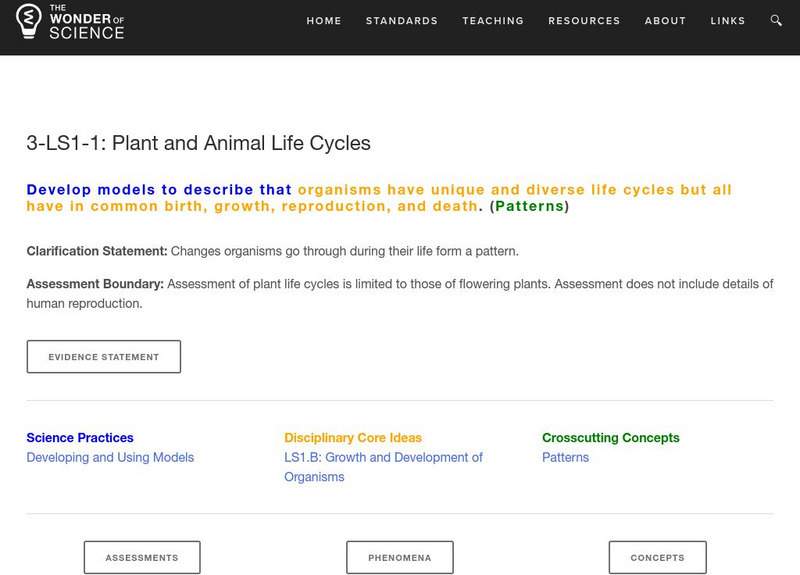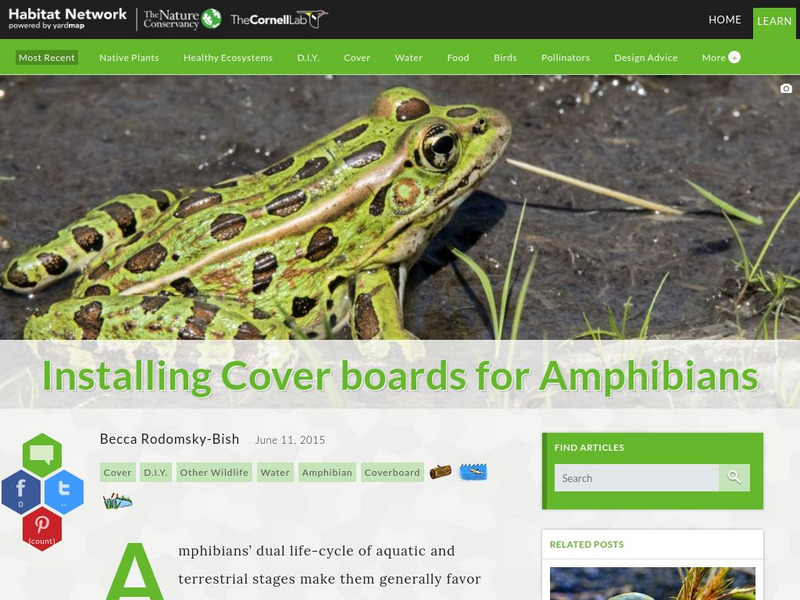Curated OER
Ecology Vocabulary
In this ecology worksheet, learners read the vocabulary words and then categorize a species found in a field, meadow, or fencerow in their state or region. Students complete 6 problems.
Curated OER
Bluebirds Ecology Vocabulary Exercise
In this bluebirds learning exercise, students categorize bluebird species found in their state and define vocabulary related to it. Students complete 6 vocabulary words.
Curated OER
Home Sweet Home
Students examine the animals that live in trees. They identify their sounds, footprints and droppings. They draw pictures of the animals as well.
Curated OER
And the Rains Came Down: A South American Rainforest
Students examine the characteristics of a South American tropical rainforest. They analyze maps, develop graphs, listen to the book, The Great Kapok Tree, and create a rainforest mural.
Curated OER
It's Okay to Exhale: Photosynthesis and Cellular Respiration
Students will observe the differences between photosynthesis and cellular respiration. Then they observe the links due to climate changes and relate how climate change affects their lives.
The Wonder of Science
The Wonder of Science: 3 Ls1 1: Plant and Animal Life Cycles
Work samples, phenomena, assessment templates, and videos that directly address standard 3-LS1-1: plant and animal life cycles.
Texas Education Agency
Texas Gateway: Investigating and Comparing Life Cycles
Learn about plant and animal life cycles through this 5E structured module.
CK-12 Foundation
Ck 12: Life Science: Plant Reproduction and Life Cycle
[Free Registration/Login may be required to access all resource tools.] The life cycle of a plant is very different from the life cycle of an animal. Humans are made entirely of diploid cells (cells with two sets of chromosomes). Our...
ClassFlow
Class Flow: Life Cycles
[Free Registration/Login Required] Through this unit, children learn that plants and animals reproduce as part of their life cycle and that in every life cycle there are distinct processes and stages. They should begin to understand how...
Enchanted Learning
Enchanted Learning: Pond Life Animal Printouts
Filled with printable pages of both plant and animal pond life, Enchanted Learning features fact sheets with color pictures.
Science Education Resource Center at Carleton College
Serc: Phenology and Weatherguide Calendar
An activity where students observe the grounds around their school to study the plant and animal life cycle. Students will make a map of the school to keep track of their observations. Students will also compare their phenology calendar...
Wisc-Online
Wisc Online: Lifecycles of Animals and Plants
This segment covers the lifecycles of various plants and animals. Illustrations begin with the production of a gamete and describe the processes that occur throughout the lifespan of living creatures.
Cornell Lab of Ornithology
Habitat Network: Installing Cover Boards for Amphibians
Find out how to make a cover board for Amphibians' dual life-cycle of aquatic and terrestrial stages.
Morning Earth
How Life Works: Biosphere Is Process: Animal & Plant Gas Exchange
Scholars explore the biology concept of the oxygen cycle. The tutorial consists of definitions and pictures about animal and plant gas exchange.
EL Education
El Education: Field Guide to the Aquatic Gardens at Forest Park
3rd grade students in Springfield, Massachusetts created this field guide as part of a learning expedition on ecosystems and pond life. Students did fieldwork in the city park and worked with local experts, closely examining the ponds....
















